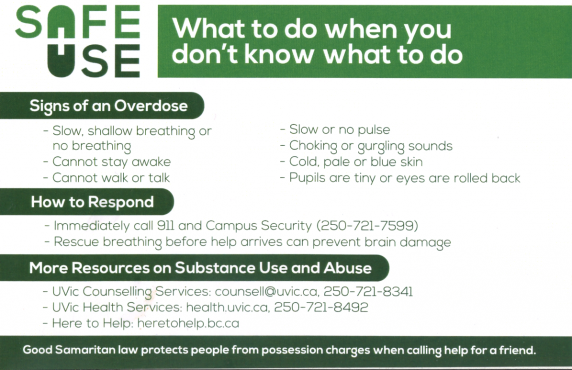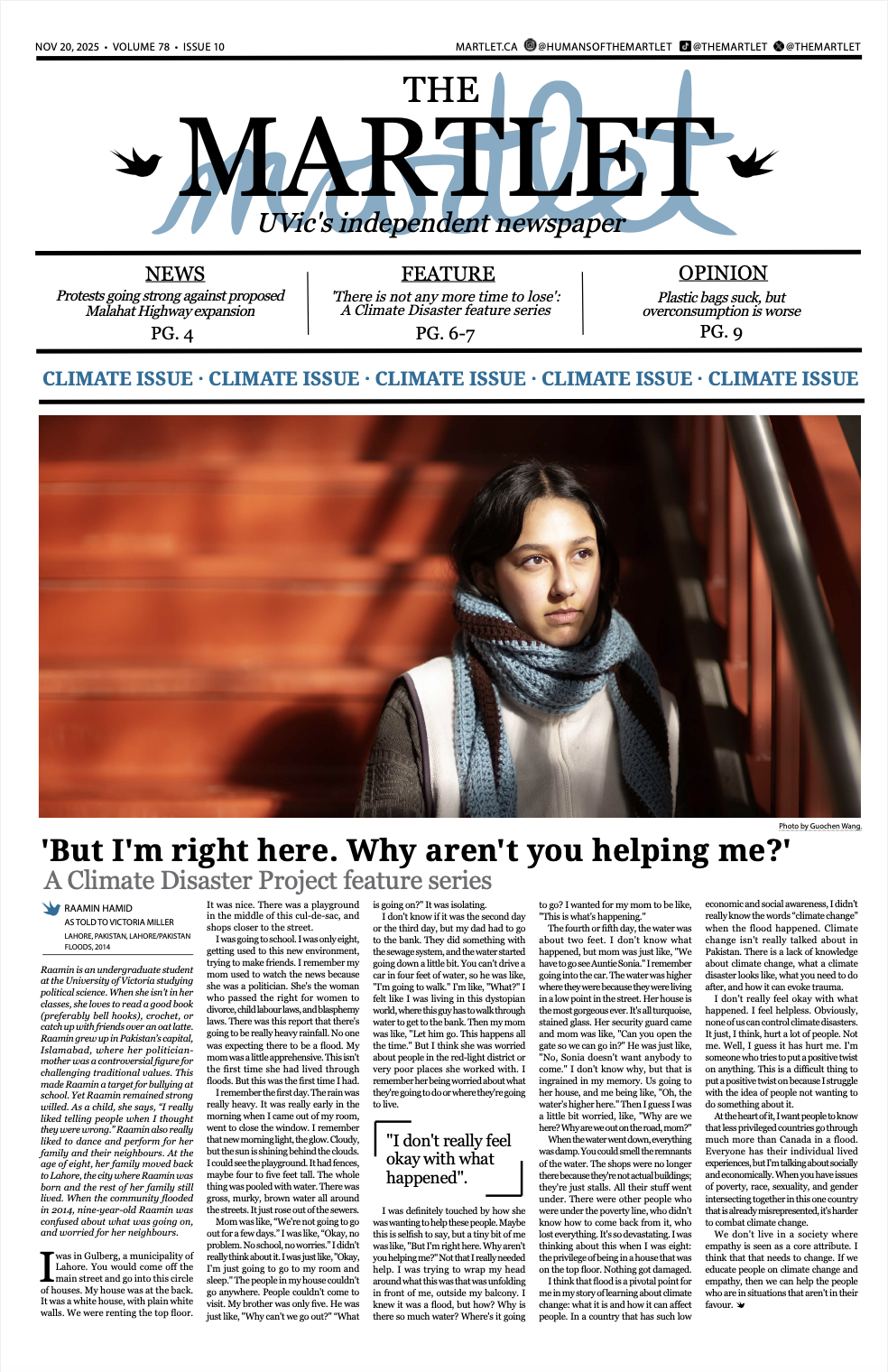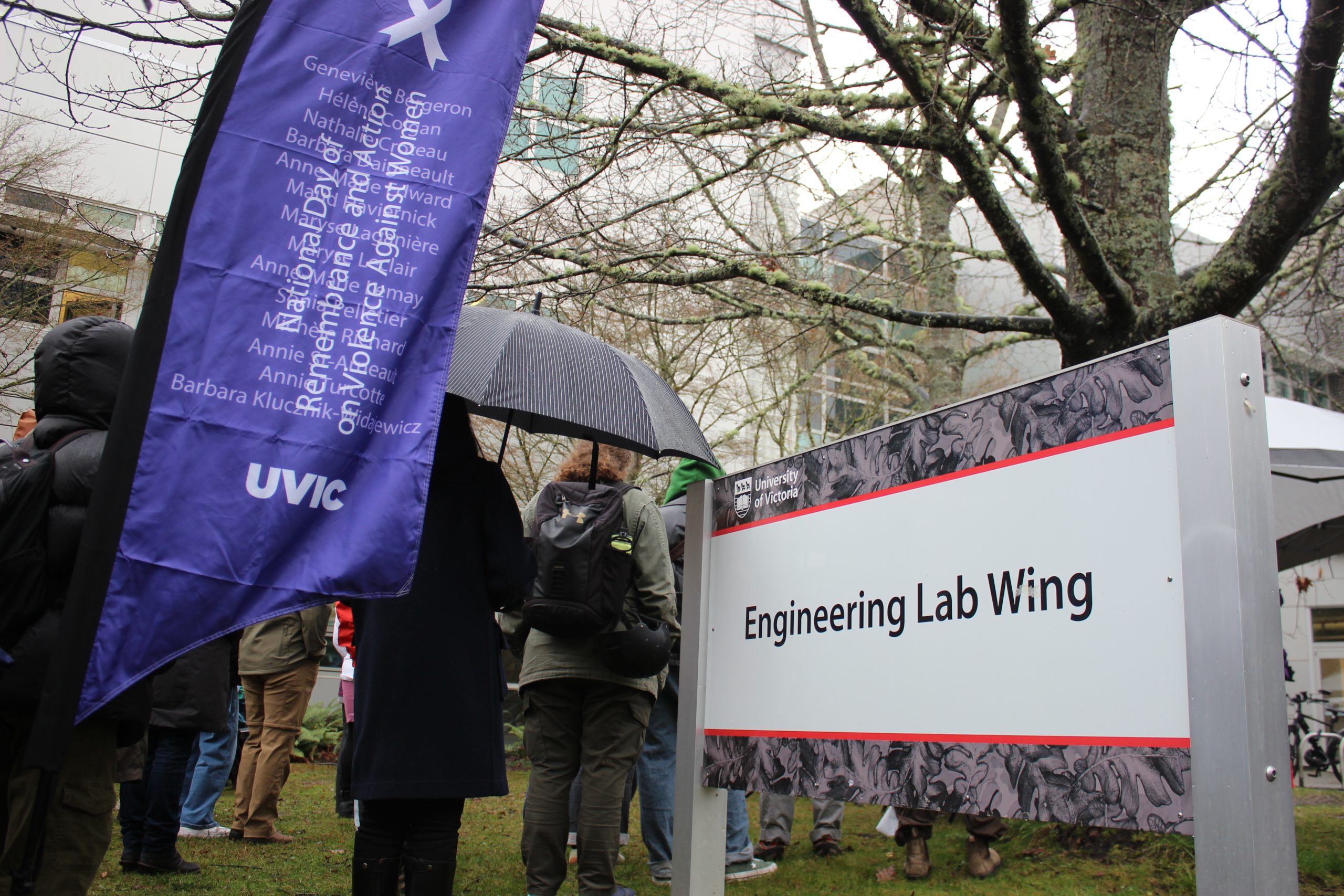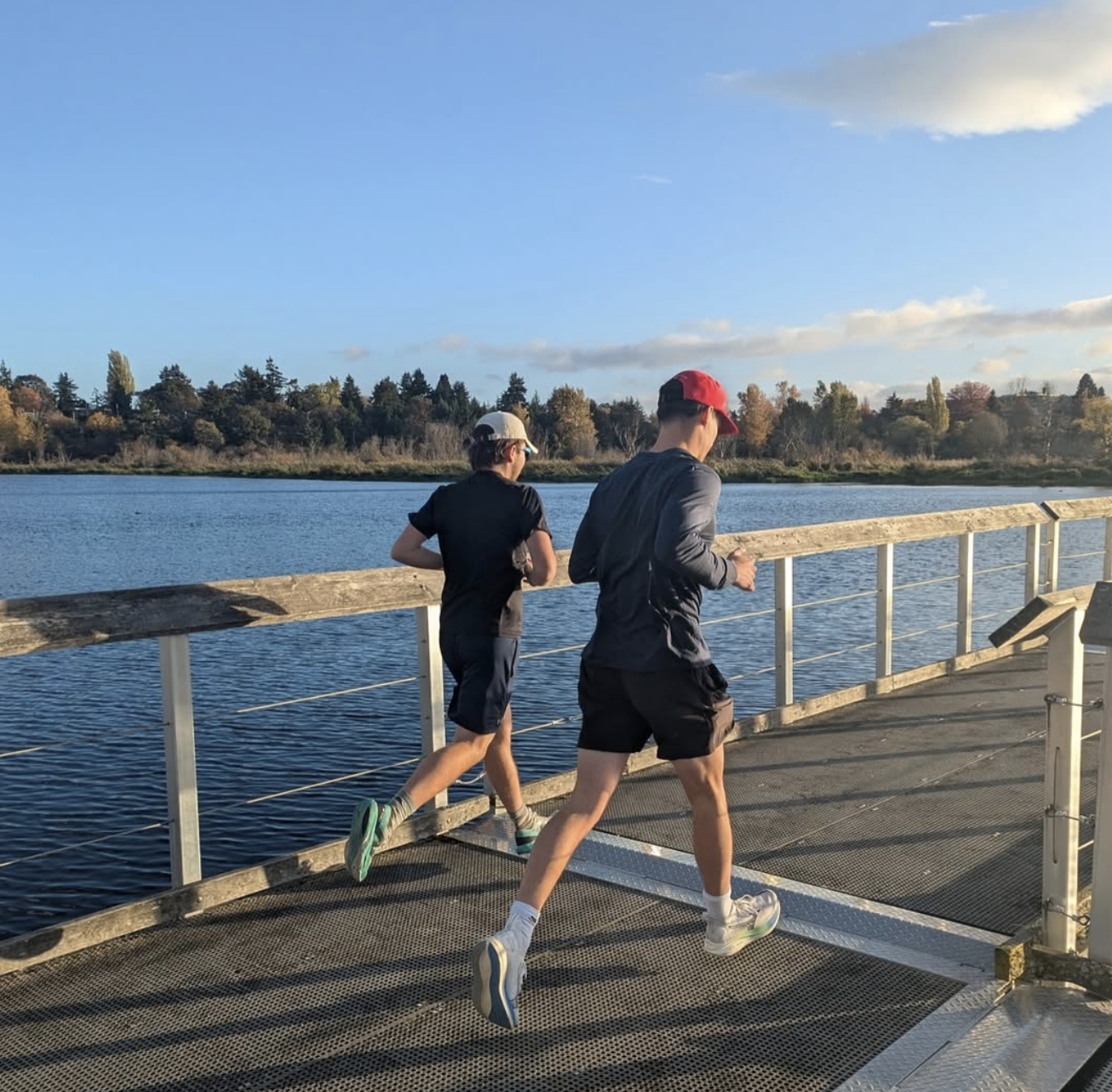At the Dec. 4 UVSS board meeting, Director of Campaigns and Community Relations Anmol Swaich announced that the former leader of the Naloxone training workshop, a university staff member, had been let go by the university amid what Swaich referred to as “restructuring” efforts.
While the university confirmed the program is being handled by a different staff member, they disagreed with the terminology “restructuring.”
“There has been no restructuring of health services or service delivery,” Paul Marck, a spokesperson for the university said. “The university continues to support the naloxone training program by providing an accredited and qualified health-care professional to oversee delivery of the program.”
The naloxone training workshops are hosted by the UVSS, with support from UVic Counselling and Health Services, as a part of the UVSS’ Safer Use Campaign that provides resources and information for Victorians concerned with the current opioid crisis.
“The former staff person will be greatly missed as her passion and expertise was invaluable,” said Swaich in an email to the Martlet. “Students should not be concerned as this training will continue with the same quality that it has been delivered with in the past few months.”
Marck cited the details of the restructuring as a personnel issue, and thus confidential. However, he clarified that a new UVic-supplied professional will assist in leading future training sessions.
(story continues below)

Distributed material from the UVSS’s Safer Use Campaign. Photo provided
According to Swaich, Safer Use naloxone training workshops will continue to take place twice a month as planned, with the January schedule to be released shortly. Each attendee of these upcoming workshops will be provided the opportunity to take home free kits of naloxone, a drug which has been proven to rapidly reverse the effects of opioid overdoses such as fentanyl or heroin through muscular injection.
Typically, naloxone training workshops first instruct participants on how to recognize the symptoms of an opioid overdose. According to the BC Centre for Disease Control, these signs may include blue lips or nails, choking, a lack of response to sound or pain, and slow or absent breath.
Participants are shown how to evaluate individuals they suspect to be suffering from an overdose, and how to apply naloxone if perceived necessary. Additionally, they may be taught how to help an overdosing person into the recovery position to await the assistance of emergency services.
The naloxone training workshop provided through Safer Use is open to both UVic students and staff, in addition to members of the community.








